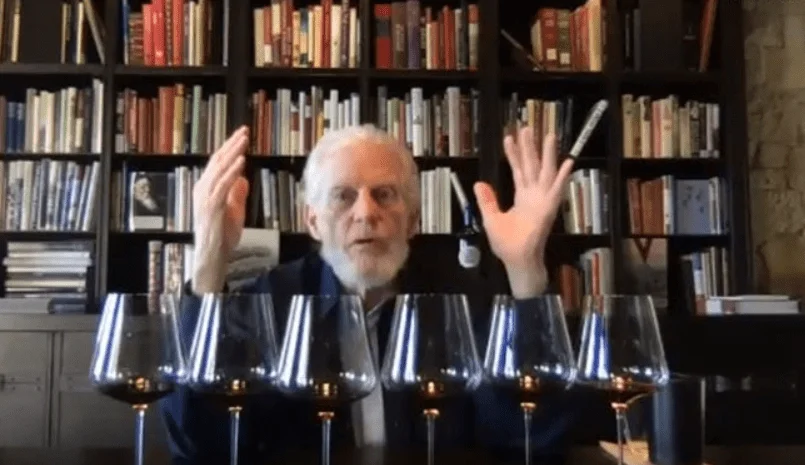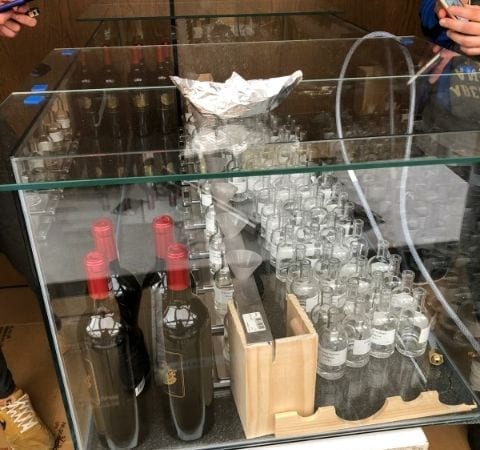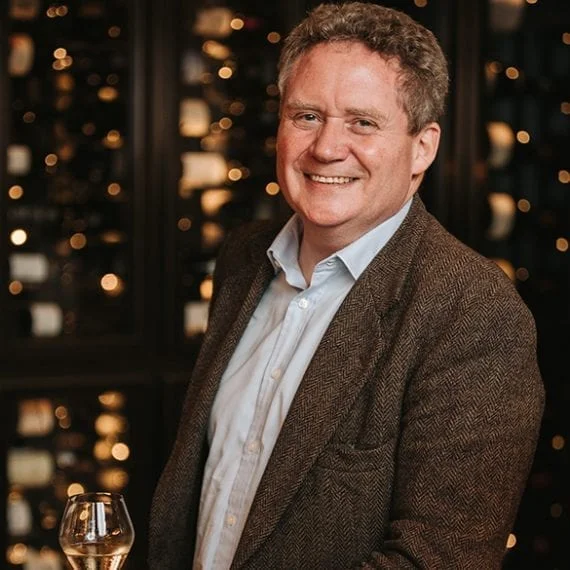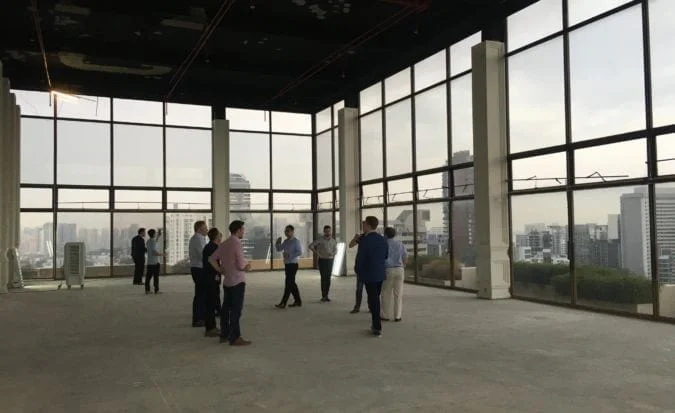Inside 67 Pall Mall, the London wine club that owned lockdown:
The private members’ club has taken virtual wine tastings to the next level. “It’s like Game of Thrones,” says 67’s chief as he considers his next move
If there’s one place that could be said to have owned virtual tastings in lockdown, it’s 67 Pall Mall, the plush wine club in the heart of London clubland.
CEO Grant Ashton and his wine director Ronan Sayburn have switched from bricks-and-mortar to cyberspace with an efficiency, verve and attention to detail that makes the rest of the wine world’s efforts look rather amateurish. Within days of the announcement of UK restrictions on 21 March, the club was running virtual masterclasses with a stable of bankable stars, headlined by Jane Anson in Bordeaux and Jasper Morris in Burgundy.
If there was a charm to the clunkiness of the first few efforts, after a day or two it was all looking utterly professional. There were none of the rabbit-in-the-headlights staring at the screen and oversized fingers prodding the “unmute” icon that plagued other webinars. Instead we had broadcast-quality images from every corner of the wine world.

Early on, Ashton and Sayburn saw the opportunity in running virtual masterclasses for producers desperate to get in front of their consumer base. “There’s a limit to the number of people you can get in the St James’s room on a windy Monday evening in February, but the internet is limitless,” said Ashton. “This is a beautiful way of getting your story out there, to Europe, to Asia – we have people tuning in from Singapore at two in the morning.” Virtual membership is priced at £10 a month, with no joining fee.
The list of the 250-odd virtual events the club has run since March reads like a who’s who of the fine wine world. Lafite. L’Evangile. Gaia. Radikon. Josmeyer. Jim Barry. Inglenook. Harlan. Montrose. Kistler. Bonneau du Martray… There are few winemakers who wouldn’t jump at the chance of a 67 seminar.
The club is even running COVID-19 antibody tests for members at £100 a pop
The wine samples are key to the success. They are sent out in nifty 72ml doses – 7,000 packs so far, or 42,000 mini-bottles. “We realised very quickly that just watching someone tasting wine doesn’t do it for everyone.” Guests had to have the physical wine – but when you’re talking about six vintages of Harlan Estate, say, the cost – and risk – of sending out bottles would be stratospheric. But as Ashton puts it, “We know argon.” The club has been using the inert gas for years with the Coravin wine preservation devices, and their ‘fishtank’ enables staff to fill the sample bottles with a dose keep the wines stable. They’re then packaged in foam and sent around the world. The seminar itself is free, while the cost of your samples goes from £60-70 for the more modest masterclasses, to ten times that for the first growths. The Harlan samples were a bit over £600.
Speaking over the phone, Ashton’s enthusiasm ricochets down the wires. He’s clearly a man who believes in seizing opportunity (the club is even running COVID-19 antibody tests for members at £100 a pop – one of the shareholders is on the board of the private healthcare company Unilabs.)
So what does he see as the biggest growth area post-lockdown? “The back catalogue! We’ve got nearly 300 hours of masterclass on YouTube. You can buy the samples for past masterclasses and re-run them at home, with your wife, get friends round if you like. You can buy a box set of Jasper Morris masterclasses. It’s like Game of Thrones.” At the last count, over 800 people had downloaded Morris’s “Burgundy – With or Without Stems” masterclass, which ran a month ago.
At this stage it gets slightly surreal. “We get people calling up and ordering six-packs of samples, say for Jane Anson’s Bordeaux horizontal. They say ‘I’m having a few of my mates around on Saturday night and we want to watch it and we’ll sit there and do the masterclass with her.’” (“Like 2020 could get any weirder,” a pleasantly surprised Anson said).


How much is all this costing? Ashton won’t say, beyond admitting that argon is “fiendishly” expensive. Financially, things seem robust. The club’s membership fees are still being paid despite its temporary closure (members are being given a “thank-you” package including ten per cent credit) . Then there’s the yet-to-be-opened Singapore outpost, which is “still acquiring members and investors”. Turnover is about £9m a year; the club went into profit for the first time in 2018.
The board decided to expand overseas in 2018, and hit on Singapore, Ashton says, simply because it’s “one of the easiest places in the world to do business”. Rents are far cheaper than Hong Kong, and there’s less red tape than China. “I’d love to do Shanghai,” he says. If Singapore is a success, expect to see a 67 Shanghai by the middle of the decade.


Grant Ashton 

The 27th floor penthouse of the Shaw Centre on Scotts Road, Singapore
Singapore won’t now open until after Chinese New Year 2021. Indeed, the penthouse on the 27th floor of the Shaw Centre on Scotts Road hasn’t been fitted out yet, though it’s all been designed “down to the last nut and bolt.”
It must be costing an awful lot of money to have an empty 10,000 square feet facility to pay for. “Not really. If this was a business that had to open, where I had to keep a fancy chef happy and interested, for example, it would have been a disaster. As it is, it’s not an issue. I can’t cry about it.”
Ashton certainly doesn’t sound as if he’s got much to be upset about. Things look well set up for the future: the London club’s been refurbished in time for a July opening; they fully intend to carry on running five virtual masterclasses a day, and proper cameras have been set up in the big tasting room so that physical masterclasses can also be streamed live.
I almost expect him to tell me he’s got a meeting with Netflix first thing tomorrow. Broadcasting seems to be working out for him – when is he going to take it to the next stage and start 67TV?
He laughs. “I could tell you something about that. But I’d have to kill you.”
Watch this space.
